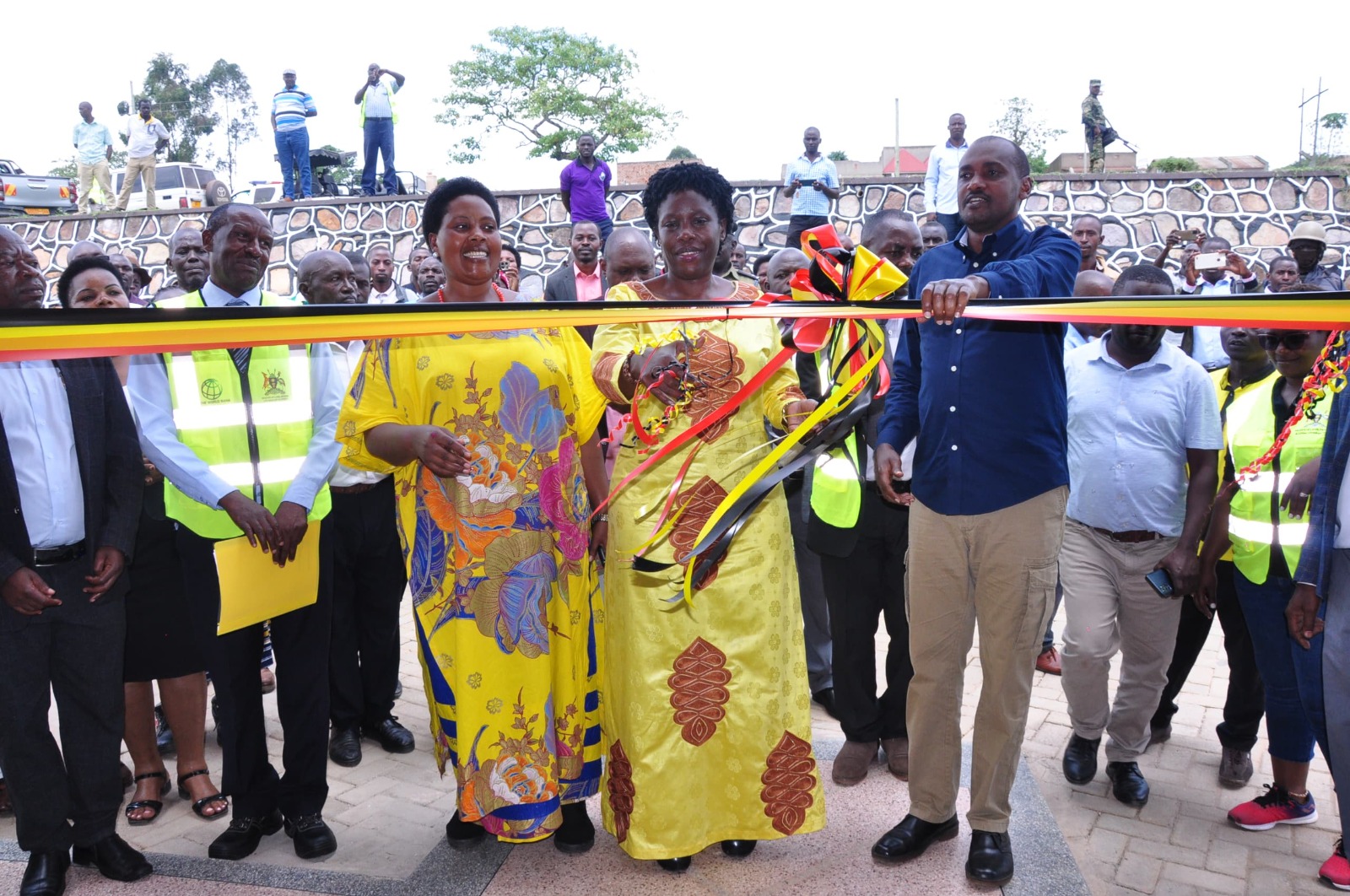On the evening of May 26, 2023, news began to circulate regarding an attack on Ugandan forces serving under the African Union Transition Mission in Somalia (ATMIS) that happened in the wee hours of that day.
As customary, various individuals and political actors expressed their views on the incident and the overall mission. Some offered condolences, while others, regrettably, such as the intolerant extremists from the National Unity Platform (NUP), out of their perpetual ignorance, celebrated this unfortunate incident and openly expressed support for the terrorist group. It is either a manifestation of confusion or a display of sheer hypocrisy and ignorance for individuals who have been advocating for international solidarity in their political campaigns to support terrorism which is a global threat.
During this discourse, my attention was drawn to two individuals and their respective arguments: Dr. Kiiza Besigye and Andrew Mwenda. Dr. Besigye, while participating in a radio talk show on Next Radio on a Saturday, suggested that Uganda would not succeed in the war against Al-Shabaab and argued that it was the responsibility of the Somali people to address their own challenges. Mwenda, a renowned veteran journalist, through his Twitter handle, supported Dr. Besigye's viewpoint by urging the Ugandan People's Defence Forces (UPDF) to withdraw its troops from Somalia.
Before delving into the discussion regarding ATMIS and the UPDF's presence in Somalia, it is crucial to have an understanding of Somalia's history. Somalia is situated on the eastern coast of Africa, with a population exceeding 11 million people. It gained independence from Italy and the UK in 1960 and has since experienced a tumultuous history.
From 1969 to 1991, the country was ruled by military dictator Siad Barre, who ruled with an iron fist suppressing political opposition and promited a clan-based system of governance that favored his own clan, the Marehan. His government was also embroiled in a prolonged conflict with neighboring Ethiopia over the control of the Ogaden region.
In 1991, the Somali civil war broke out, with various clan-based militia groups vying for control over the country. The conflict ravaged Somalia's infrastructure, and the ensuing instability provided an opportunity for extremist groups like Al-Shabaab to gain influence.
Al-Shabaab, an extremist Islamic militant group, emerged from the Islamic Courts Union, a previous Islamist movement that held sway over much of southern Somalia between 2006 and 2007. Established in 2006, Al-Shabaab consolidated power through a combination of violent means and social welfare initiatives.
Recognizing the deteriorating security situation in Somalia, the African Union's Peace and Security Council convened in Nairobi, Kenya, in November 2006 and acknowledged the need for a peacekeeping mission to intervene. Consequently, in December of the same year, the African Union authorized the deployment of a peacekeeping mission to Somalia, known as the African Union Mission for Somalia (AMIS). AMIS' objective was to support the Transitional Federal Government of Somalia and its institutions, which were grappling to gain control of the country after years of civil war and turmoil.
Unfortunately, due to resource constraints, AMIS was unable to effectively fulfil its mandate. The situation in Somalia continued to deteriorate, with Al-Shabaab expanding its control, making it increasingly difficult for AMIS to operate.
In January 2007, the United Nations Security Council passed a resolution endorsing the deployment of a larger peacekeeping force to Somalia, which came to be known as AMISOM. The primary mandate of AMISOM was to provide support to the Federal Government of Somalia in establishing a secure environment, facilitating the delivery of humanitarian aid, and assisting in the reconstruction of the country's institutions.
In accordance with its Pan-African ideology and principles, the UPDF were among the initial forces to deploy to Somalia in 2007 as part of the AMISOM. Uganda's involvement in Somalia traces back to the early 2000s when it provided logistical support and training to the Somali Transitional National Government (TNG) forces. In 2007, Uganda dispatched 1,500 troops to AMISOM, becoming the largest troop-contributing country to the mission. Since then, the UPDF has played a pivotal role in the mission, participating in numerous successful operations against Al-Shabaab and other militant groups.
UPDF was initially deployed in Mogadishu, where it was tasked with securing the airport and seaport, protecting the transitional government and its institutions, as well as conducting patrols to deter attacks and maintain security. Over time, the UPDF expanded its involvement in combat operations against Al-Shabaab, achieving remarkable successes. Some noteworthy operations carried out by the UPDF in Somalia include;
1. Capture of Mogadishu: In 2011, the UPDF played a significant role in capturing Mogadishu, which had been under the control of Al-Shabaab since 2006. Working in close collaboration with other AMISOM forces, the UPDF orchestrated a systematic and sustained offensive against the militants, ultimately resulting in the liberation of the city, Mogadishu.
2. Capture of Afgoye: In 2012, the UPDF spearheaded an offensive to capture the town of Afgoye, located west of Mogadishu. The town had been under Al-Shabaab's control for several years and served as a key transit point for the group's fighters and supplies. The UPDF successfully captured the town, securing its approaches and cutting off one of Al-Shabaab's main supply lines.
3. Operation Linda Nchi: In 2011, the UPDF initiated Operation Linda Nchi, a joint military campaign with the Kenya Defence Forces (KDF) aimed at flushing out Al-Shabaab from southern Somalia. The operation was successful in driving the militants out of major towns, such as Kismayo, a key stronghold for Al-Shabaab.
4. Battle of Kismayo: In 2012, the UPDF played a pivotal role in the Battle of Kismayo, a significant amphibious assault conducted by AMISOM forces to retake the port city from Al-Shabaab. The UPDF's Marine Brigade made substantial contributions in the operation, which kicked out militants from the city and its surrounding areas.
Since the commencement of AMISOM's mission in Somalia in 2007, the country has made remarkable strides democratization and economic transformation. In 2012, Somalia adopted a provisional constitution, paving the way for the establishment of a new federal government. Subsequently, Somalia has successfully conducted multiple elections, including the presidential election in 2017. The Somalia economy heavily relies on agriculture, livestock, and remittances and has made some progress in recent years. According to the World Bank, Somalia's economy grew by an estimated 2.9% in 2019, compared to 0.5% in 2018.
Given these realities, it is unjust to undermine the significance of AMISOM in the pursuit of peace and stability in Somalia, as well as the crucial role played by the UPDF in this endeavor. The stability of Somalia holds profound importance for the region, and this operation stands as a substantial contribution to the global fight against terrorism. Neglecting the security concerns of the Somali people and abandoning them to the mercy of a terrorist group would be a grave betrayal.
Somalia has significant potential in facilitating trade between Africa and other continents owing to its strategic location and close proximity to major trade routes. It is situated along the main shipping lanes that connect Africa to Asia, Europe, and the Middle East, positioning it ideally to serve as a pivotal transit point for goods traversing these regions. Given its geographical placement at the nexus of the Red Sea and the Indian Ocean, the country assumes a crucial role in international shipping and trade. As Africa charts its course for the implementation of the African Continental Free Trade Area (AfCFTA), Somalia emerges as a nation of great strategic economic importance.
Therefore, understanding the strategic importance that Somalia plays in the development and stability of our region and Africa. It is therefore imperative to recognise the significant impact of AMISOM and the UPDF in Somalia. Disregarding their crucial role would not only jeopardise the progress achieved but also compromise our pan-African agenda of building a stable and progressive Africa and our role in the global fight against terrorism. The pursuit of peace, the confrontation of extremism, and the building of stability in Somalia require unwavering commitment and support, emphasizing the importance of continuing the mission with determination and resolve.
The writer is a Patriotic Ugandan.








Comments